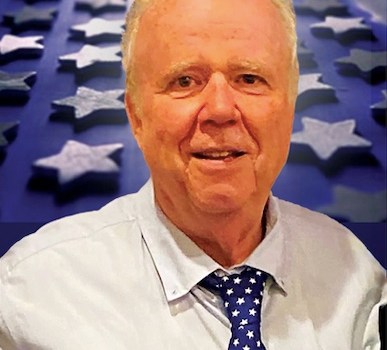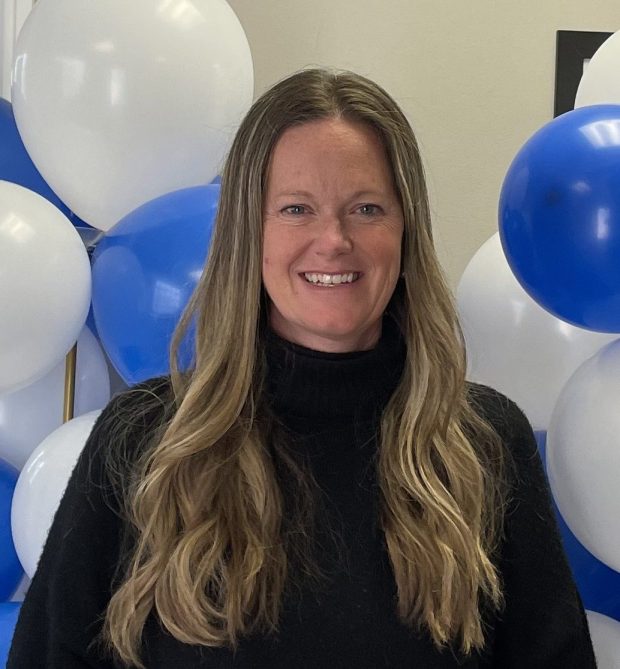Incumbent Democrat Mary Gill, making her first run for office, and Republican challenger Herb Hebein, a retired Chicago police officer, say public safety, high property taxes and education are top issues in the 35th House District Illinois.
After southwest suburban faced record-high property taxes following reassessments delayed during the pandemic, Gill said she and other legislators worked with the assessor’s office and the Board of Review to assist residents in appealing their tax assessments. She also aims to raise awareness about available options and is committed to supporting initiatives to address property taxes.
“Looking at next session, I would support anything that would help with property taxes, because I hear it from every part of my district,” she said.
Hebein said property taxes, along with increasing costs of goods due to inflation, are placing a strain on residents.
“They’re taxing people right out of their homes,” Hebein said. “You know, people are trying to feed themselves and here they say we’re going to raise your taxes too.”
Gill, from Mount Greenwood, was unanimously selected by Democratic Party leaders in 2023 to replace Rep. Fran Hurley, who was appointed by Gov. J.B. Pritzker to serve on the Labor Relations Board.
Hebein, also from Mount Greenwood, has sought the district seat four times, first running against Hurley in 2018, and again in 2020 and 2022.

Hebein ran uncontested in the Republican Primary and Gill defeated financial adviser David Dewar in the Democratic Primary.
For Hebein, many issues stem from what he believes is a fractured education system where children are being “politicized.” Hebein referenced an Illinois State Board of Education report in May that found 70% of third graders in the state can’t read at grade level, saying he is concerned children are not being properly taught common subjects like history, reading, writing and arithmetic.
He said schools instead prioritize sexual education classes and gender studies. Hebein said he would work to repeal a 2021 law that added personal health and safety education standards for students in kindergarten through fifth grade, and made health education more inclusive for sixth through 12th grades.
“Children need to be taught to learn and to be able to succeed in life,” Hebein said. “These children are not going to have that chance to succeed in life. The education has to be fixed. We must shut down the Department of Education.”
Gill taught special education at Heritage Middle School for four years and served as the executive director of the Mount Greenwood Community and Business Association, where she advocated for policies supporting small businesses.
Gill said education has been important for her since taking office. After the Chicago Board of Education unanimously voted to remove uniformed Chicago police officers from public schools in February, she sponsored a bill allowing schools to determine whether to keep police officers on campus. This legislation would empower local school councils to negotiate their own contracts with the Chicago Police Department if they decide to retain officers.
Gill said the bill was never called, but she remains committed to finding ways to enhance public safety in the education system.
“I did work very hard on that bill. So I was sort of bummed about that,” she said. “My high school, Morgan Park High School, came to me when downtown announced that they were removing the (security resource officers) from the Chicago public high schools. My high school loved their SRO.”
She said is also seeking ways to support first responders who make up a large portion of residents in the 35th District.
Gill was a sponsor of legislation to expand mental health resources for first responders. Signed by Pritzker in August, the bill mandates that health insurance provided by the state, counties and municipalities include coverage for couples counseling for these essential workers, she said.
“Some of the insurance companies don’t love it, but I just think it’s really important to have mental health available to everybody,” Gill said.
Hebein said rising crime rates across the state need to be addressed, and advocates for increased funding for the police and the repeal of the SAFE-T Act, which included a series of criminal justice reforms including eliminating cash bail.
“People are getting more and more worried about going out and walking around,” Hebein said. “They’re, you know, demonizing the police departments. Police want to do their job, but they’re being demonized by these politicians with their rules and new laws. Now the people are going to have to start standing up and say, wait a minute. The police are protecting us. We need to start helping them so they can protect us again.”
Gill was backed legislation to expand access to treatments and medications to slow the progression of Alzheimer’s disease, as well as a bill to exempt specific personal items from liens after a vehicle is towed.
Hebein said among his legislative goals is banning illegal immigration, removing Illinois’ designation as a sanctuary state and ensuring that noncitizens are unable to hold law enforcement positions.
When Gill replaced Hurley, she said never anticipated such a significant turn in her career. Now, she reflects on the experience with gratitude.
“It’s amazing how life can change, and I’m thankful for the chance to make a bigger impact,” she said.
Hebein said he is committed to connecting with voters in the district by hosting town halls if elected.
“It’s just something you can’t guess what people want,” he said. “You got to know what they want.”
The district includes all or portions of Beverly, Mount Greenwood, Palos Heights, Palos Park, Orland Park, Worth and Alsip.
State campaign finance disclosure reports show Gill’s campaign took in $16,100 in contributions and $27,000 in in-kind contributions during the July-September quarter. Expenditures were nearly $14,000, and at the end of the period, the campaign had about $67,400 left to spend.
For Hebein, filings with the Illinois State Board of Elections show no contributions to the campaign.
smoilanen@chicagotribune.com




